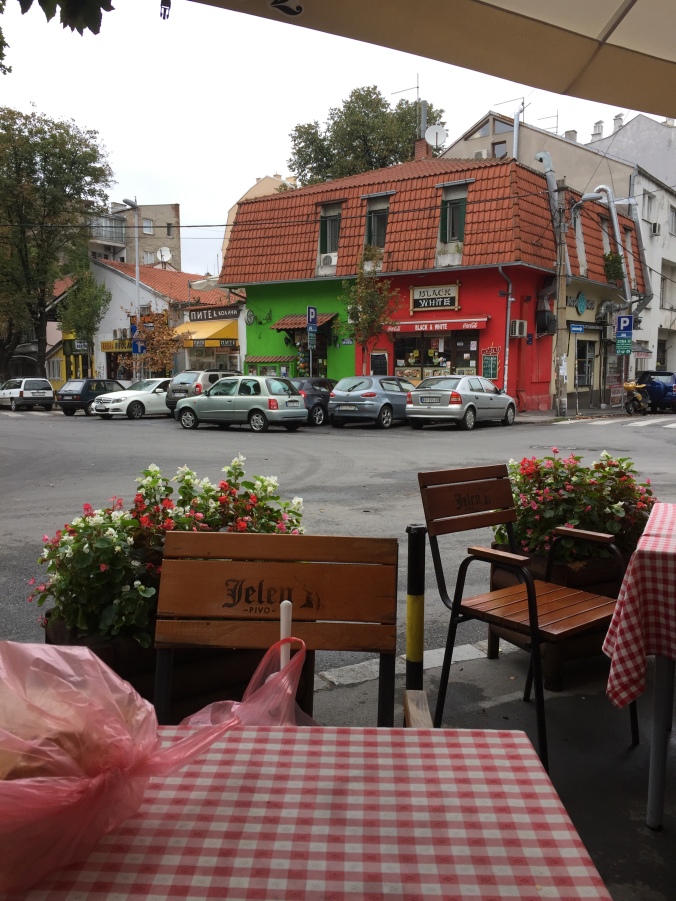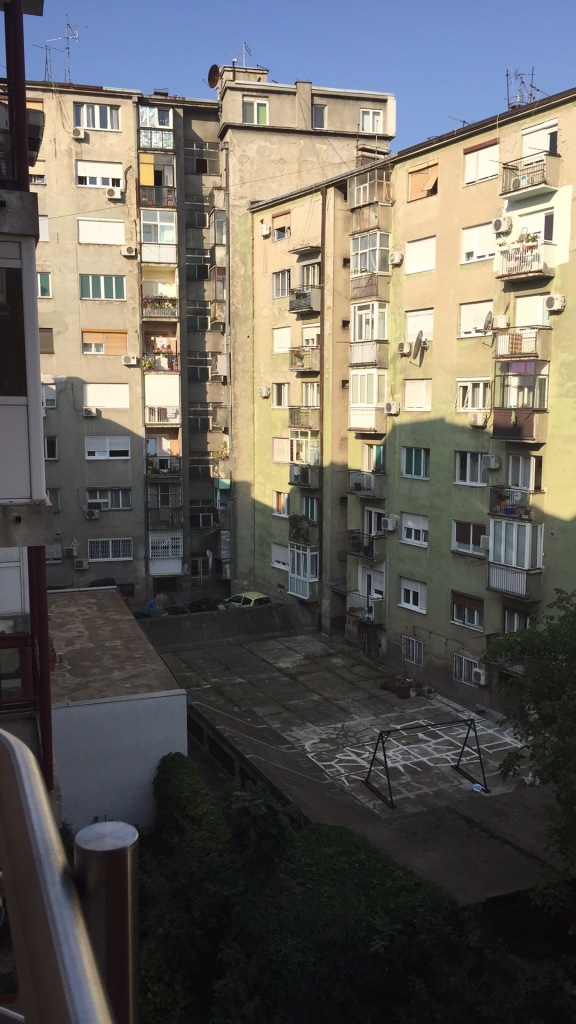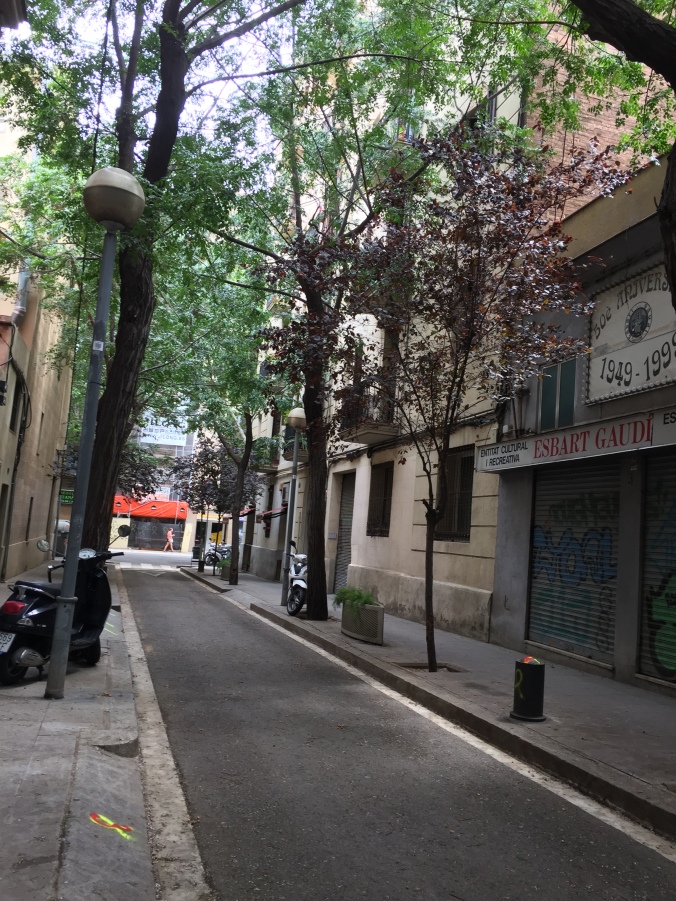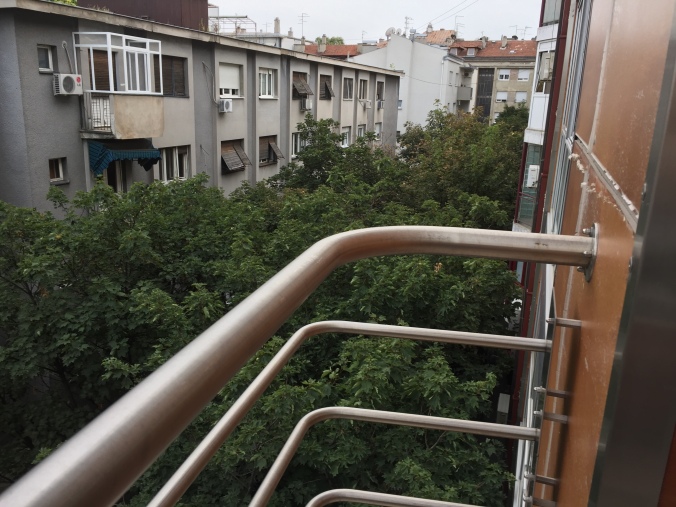During my first week in Belgrade, I set out to find Kalenic Pijaca, which is Belgrade’s largest green market, located only a few minutes walk from our home. Unfortunately, I got there too late, and it was closed. So I snapped this picture, just to confirm that it was even the right place.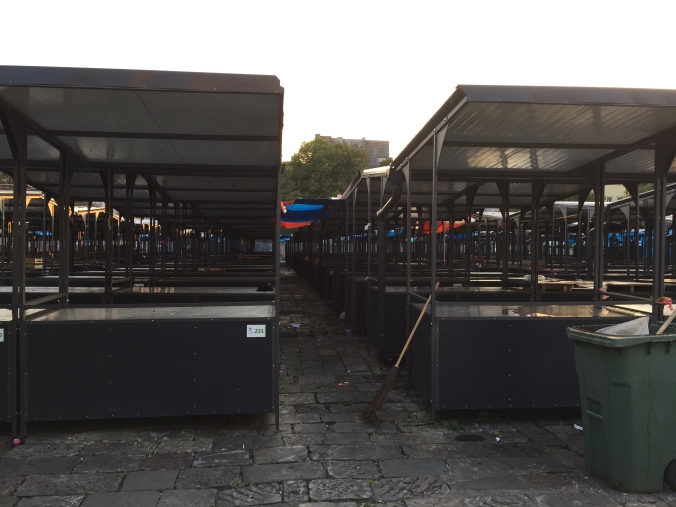
All of the vendors and their colourful produce had gone. Sweepers were just finishing up for the day. It all looked very utilitarian and grey. Now when I hear from Belgrade that COVID-19 has closed all their green markets, so the above image is what I see in my mind’s eye. Such a sad thing, as the Kalenic Pijaca was such a big part of the local community. But this pandemic too will pass and it will eventually be back to its colorful self.
After years of putrefying vegetables in Manila, fresh, but dodgy vegetables from Kathmandu that needed to be sterilized before eating, and overpriced, baggy vegetables from Jamaica, the supply in Belgrade was cheap, fresh, local, seasonal and very varied. It was a cook’s dream. Every visit, your favourite retailers would be there but, there were always new ones to discover, especially on weekends. I found fresh blueberry juice, homemade jams and avjar, fresh and dried flowers, imported olives, different Serbian and Greek cheeses, fat free bakery products and wild greens of every type. Upstairs there was an old fashioned cheese, ham, bacon and meats section, which was like stepping back in time to 1952. At the back of the market, there was a pasta alley, a fishmonger area, and along the far edge, a gypsy market selling used clothing and all kinds of very battered bits and bobs. We even had a French Serbian guy selling imported French cheeses. I wonder if he is still there? At the entrance, if was common to see older Serbians crouched on the ground, selling small items they had handmade or brought from their gardens: knitted hats or gloves, olives, capers, vine leaves, dried lavender or rosebuds.. Gypsies sold random things from “the back of a lorry,” and old guys played chess or backgammon on upturned vegetable crates.
Small bricks and mortar stores formed the perimeter of the market. There, one store that sold mainly eggs, always had a long queue out the door and down the street. I never did figure out the attraction. The world’s best eggs? Or simply the cheapest prices? I asked a Serbian friend and she said that long lines attract people. It didn’t really matter what they were selling, if the line was long, people would join it. I’m not sure that was really the case, but she may have a window into the Serbian mentality that I never gained?
Shopping was tough going at first as I knew not one word of Serbian. Fortunately, the prices were mostly marked and the exchange rate was easy. So we communicated with fingers, the occasional German –I at least know German numbers– or simply a pen and paper. Vendors were nearly always patient, friendly and honest when I held out my wad of small notes and let them pull the correct amount.
The market was our destination nearly every weekend, and the third in the trifactor of reasons that the city really grew on me. I miss Kalenic Pijaca, but unfortunately I am not alone. I’m sure the local miss the centrepoint of their community more, and look forward to their market reopening sooner rather than later.
Here are a few random videos that I took a while back. Hopefully it will give you the feel of the place;


